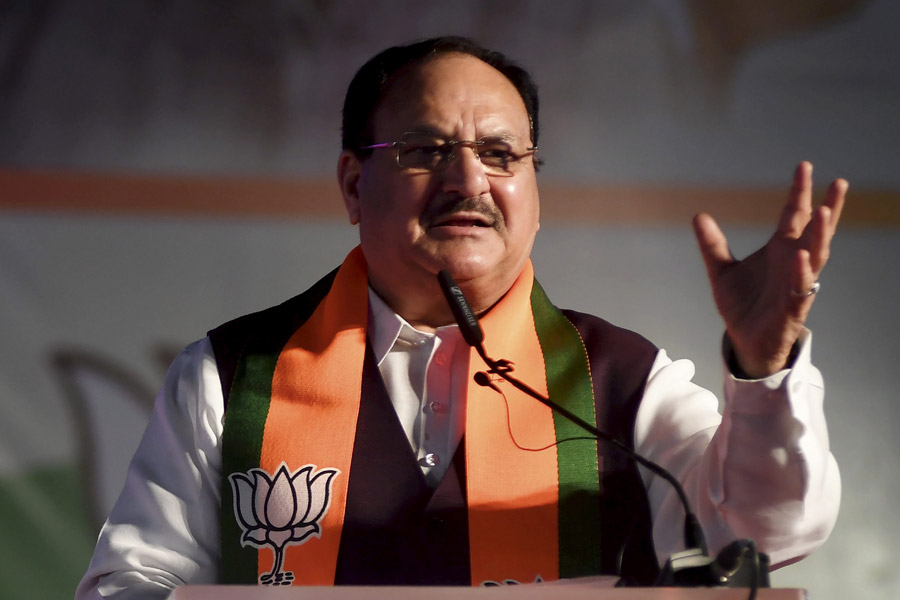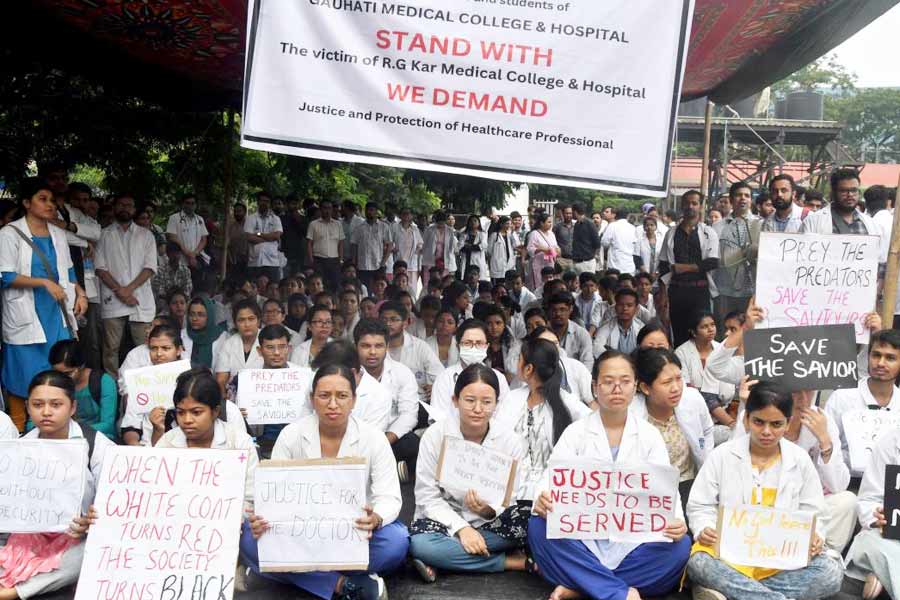The IMA has written to Union Health Minister J P Nadda, highlighting the urgent need for bringing a central law to deal with attacks on medics and healthcare establishments, and pointing out that a special exigency exists in relation to violence on doctors and hospitals.
The association demanded that a draft bill of 2019 that incorporated the amendment clauses of the Epidemic Diseases (Amendment) Act, 2020 and the Code Grey Protocol of the Kerala government -- "Prevention Management of Violence against Healthcare Workers" -- be proclaimed as an ordinance to instill confidence in the minds of doctors.
The Indian Medical Association (IMA) held consultations with its state presidents and secretaries as well as with resident doctors' associations on Tuesday and Wednesday.
The doctors' body expressed gratitude to Nadda for receiving its delegation on August 13 regarding the issue of a central law on violence on doctors and hospitals, safety and security at the workplaces of healthcare personnel and the working and living conditions of resident doctors.
The IMA also thanked him for accepting the suggestions, following which the National Medical Commission (NMC) issued an advisory on security measures as a pre-condition for giving recognition to new medical colleges.
The NMC advisory was released an hour after the meeting between the IMA delegation and Nadda.
It mentioned that the IMA had called for withdrawing the services of the medical fraternity, except casualties and emergencies, across India on August 17 and that the withdrawal of services was near total in almost all the districts of the country.
It mentioned that the Supreme Court has intervened in the rape-and-murder case of a trainee doctor in Kolkata's R G Kar Medical College and Hospital and formed a National Task Force (NTF) in this regard.
The court's intervention has entrusted the NTF with the action required for the safety and security of healthcare professional, including doctors, the working and living conditions of resident doctors as also matters relating to the alleged crime at the Kolkata hospital.
"The issue of promulgating an ordinance for the Central Act for protection of healthcare professionals remains to be addressed. The IMA is keen on a Central Act in this regard," the letter said.
The IMA submitted a list of facts for Nadda's consideration.
It said the Clinical Establishments (Registration and Regulation) Act, 2010 was enacted by Parliament at the request of four states, even though hospitals and dispensaries come under the Constitution's State List.
The health ministry has documented an Office Memorandum with the IMA, where the ministry has said "it shall explore the possibility to initiate the process to bring a Central Act in line with those in vogue in states", the letter said.
It also highlighted that a draft legislation -- the Healthcare Service Personnel and Clinical Establishments (Prohibition of Violence and Damage to Property) Bill, 2019 -- was placed in the public domain after due consultations with all the stakeholders. The Union home and law ministries were involved, along with the health ministry, in drafting the Bill.
The IMA went on to mention that the Epidemic Diseases (Amendment) Ordinance, 2020 was proclaimed on April 22, 2020, amending the Epidemic Diseases Act of 1897 during the COVID-19 settings.
The same was approved and passed by Parliament as the Epidemic Diseases (Amendment) Act, 2020 and received the president's assent on September 28, 2020.
"All the above proceedings show the sensitivity of the Union Health Ministry regarding violence on doctors and hospitals. That the government went through all the above exercises shows that there is a constitutional validity, which is implicitly acknowledged," the IMA said.
Similarly, the enactment of the Clinical Establishments Act brings out the constitutional provisions under which a central law could be enacted on hospitals and healthcare personnel, it pointed out.
The IMA said doctors stand as a separate class due to the nature of their professional services. The Supreme Court acknowledged that in the Jacob Mathew vs State of Punjab and Another judgment of 2004, it pointed out.
"There are special laws enacted for specific exigencies like the POCSO Act as well. We, the Indian Medical Association, appeal to you that a special exigency exists in relation to the violence on doctors and hospitals. The doctors are vulnerable in their workplace," the IMA said in the letter to Nadda.
The State has a bounden duty to provide safety and security to doctors and other healthcare personnel, it added.
The IMA said 25 state laws in this regard have not prevented violence on doctors across the country. Very few FIRs have been lodged and very few convictions have happened, it said and emphasised that there is an urgent need to bring a central law on violence on doctors and hospitals.
This is felt acutely by the medical fraternity of India, the IMA said.
"We demand that the draft bill 2019 incorporating the amendment clauses of the Epidemic Diseases (Amendment) Act, 2020 and the Code Grey Protocol of the Kerala government, "Prevention Management of Violence against Healthcare Workers", be proclaimed as an ordinance to instill confidence into the minds of the Doctors of India," the letter said.
Resident doctors staged a protest at Jantar Mantar here on Wednesday, marking the 10th day of their indefinite strike over the Kolkata incident.
Except for the headline, this story has not been edited by The Telegraph Online staff and has been published from a syndicated feed.


